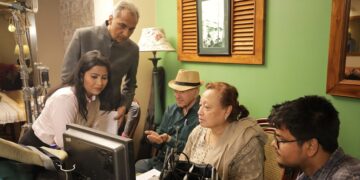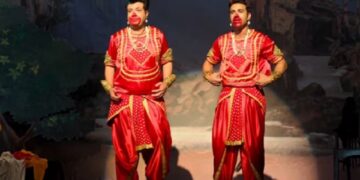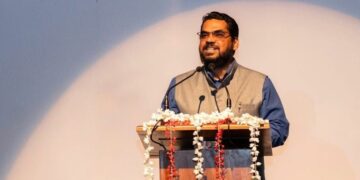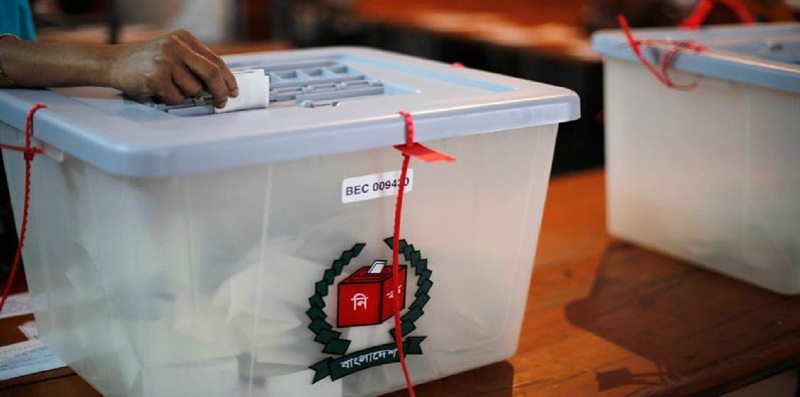If everything goes according to the plan of Dr Muhammad Yunus-led Interim Government, Bangladesh is heading towards a manufactured verdict in the next general election, expected in February 2026 — just ahead of the Ramadan fasting season. Two major political parties—ousted Prime Minister Sheikh Hasina’s Awami League and the Jatiyo Party—will likely be kept out of the race, creating space for Islamist forces. Historically, these two parties together enjoy support from nearly half of Bangladesh’s 120 million voters.
In their absence, the Bangladesh Nationalist Party (BNP) is poised to secure a predictable victory in an opposition-free election. However, this victory may prove short-lived. The Islamist outfit Jamaat-e-Islami—accused of committing mass atrocities during the 1971 Liberation War—is preparing to re-emerge as the second-largest political force. The third position may go to the newly formed National Citizen Party (NCP), widely seen as an alter ego of Jamaat.
Islamist Leverage
Both Jamaat and the NCP enjoy considerable leverage over the Interim Government. Dr Yunus has openly patronized NCP leaders and given them disproportionate influence in policymaking. Jamaat, meanwhile, is using this political window to consolidate its grassroots presence. Despite possessing a robust organisation and financial base, Jamaat had never polled more than 5% of the national vote. With the Awami League sidelined, its share could rise above 20%.
The two parties will likely contest separately to simulate electoral competition. In reality, they are collaborating toward a common goal: converting Bangladesh into an Islamic republic. Once the election is over, they may attempt to topple the BNP-led government and seize power directly.
The signs are already visible. In March, a Dhaka court overturned the results of the 2020 municipal election and declared BNP leader Ishraque Hossain the rightful winner. The Interim Government has yet to act on the verdict. In contrast, it swiftly appointed a hardcore Islamist—allegedly linked to the banned Hizb-ut Tahrir—as the head of Dhaka North City Corporation. This appointment is documented in the South Asia Terrorism Portal.
Limiting Democratic Space
Looking back, Dr Yunus may be doing more harm to Bangladesh’s democratic fabric than even its past military rulers. In May, the interim government banned the Awami League from both political and electoral participation. This is no minor development. The League is Bangladesh’s oldest political party, the one that led the Liberation movement of 1971. It has historically commanded the loyalty of nearly 40% of the electorate, regardless of electoral outcomes. Even at its lowest ebb, it retained at least 25% of the vote share.
From 2009 to 2024, Sheikh Hasina’s government mounted the strongest resistance against Islamist extremism. She took office when Bangladesh was on the Financial Action Task Force (FATF) grey list. By 2014, her administration had removed the country from that list, creating a stable environment for investment and growth. Ironically, the same party is now banned for “anti-national activities” by the very administration that benefited from this stability.
The Jatiyo Party, traditionally a distant third with around 8-9% vote share, has not been officially banned. Yet Dr Yunus has excluded it from all political dialogue for nearly 10 months. The party has faced repeated attacks on its offices, and even the residence of party president G.M. Quader has been targeted.
Criminalizing Dissent
Over the last 10 months, the Yunus-led administration has released hundreds of convicted criminals and even known extremists, while arresting thousands of Awami League activists, journalists, civil society leaders, and respected legal professionals. Many of these charges appear to be politically motivated.
In April, Barrister Tureen Afroz—a senior citizen and former prosecutor at the International Crimes Tribunal—was arrested and charged with attempting to murder a 21-year-old during the July 2024 protests. Over 266 journalists are now facing criminal charges, including accusations of murder.
Meanwhile, any mention of Bangabandhu Sheikh Mujibur Rahman—the founding father of Bangladesh and the architect of its 1971 liberation—is being systematically silenced. In May, an actor who played a role in Mujib: The Making of a Nation, a 2023 film directed by internationally acclaimed Indian filmmaker Shyam Benegal, was arrested. A Dhaka University professor who criticized the Yunus administration in the media has recently received a corruption notice for an incident from 2018. Ironically, he had earlier acted as a whistleblower in the same case — and is also a certified election observer.
ALSO READ: A grave betrayal: The release of BDR mutineers is an insult to the Bangladesh Army’s fallen
Conclusion: A Nation at the Crossroads
The aim is clear. The interim administration is dismantling Bangladesh’s democratic architecture to pave the way for Islamist dominance. Dissent is criminalized, history is erased, and political alternatives are being eliminated. As Bangladesh approaches the 2026 polls, the real contest is no longer between political parties. It is a battle between the manufactured theocracy and the democratic ideals enshrined in the blood-stained birth of a nation.















